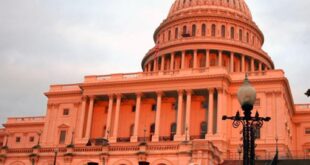GENEVA (Reuters) – Nearly one in five of Iraq’s population before the U.S.-led invasion five years ago are living as internally displaced people or refugees in other countries, a global relief agency said on Tuesday.
The International Organization for Migration (IOM) said the 2.7 million displaced were putting huge pressure on Iraq’s shaky infrastructure and outside funding was lacking.
The situation of the 2.4 million refugees, who are mainly in Syria and Jordan, was also deteriorating, said the IOM, an independent body that cooperates with the United Nations and its humanitarian agencies.
“There is very little light at the end of the tunnel in Iraq’s humanitarian crisis,” IOM spokeswoman Jemini Pandya told a news briefing. “Conditions for the displaced, and refugees, have been getting steadily worse.”
Before the 2003 intervention which overthrew Saddam Hussein, the population of Iraq was some 27 million.
A report from the U.N. refugee agency UNHCR on Tuesday said in 2007 twice as many Iraqis — some 45,200 — applied for asylum in industrialized countries as in 2006.
The IOM said refugees and internally-displaced — commonly known as IDPs — returning to Iraq or their home areas accounted for only around 1 percent of the total.
Many returnees could not go back to their homes because they were occupied by other people — normally from another Muslim religious group — or had been destroyed.
Although there had been a large number of IDPs in Iraq under Saddam, the 2003 invasion displaced tens of thousands more, IOM said. The number soared in 2006 as a result of sectarian violence, at one point reaching 60,000 a month.
Some of Iraq’s regional governates, unable to take the pressure on their resources of large numbers of new arrivals, had closed their borders to IDPs while nearby countries were limiting refugees using visa restrictions.
“Many IDPs live in sub-standard or over-crowded shelter as they are largely without income to afford escalating rent prices,” an IOM statement said.
More than 75 percent had no access to government food rations and nearly 20 percent lacked supplies of clean water.
Some 33 percent could not get the medicine they needed while only 20 percent had had any help from humanitarian agencies.
 Eurasia Press & News
Eurasia Press & News



